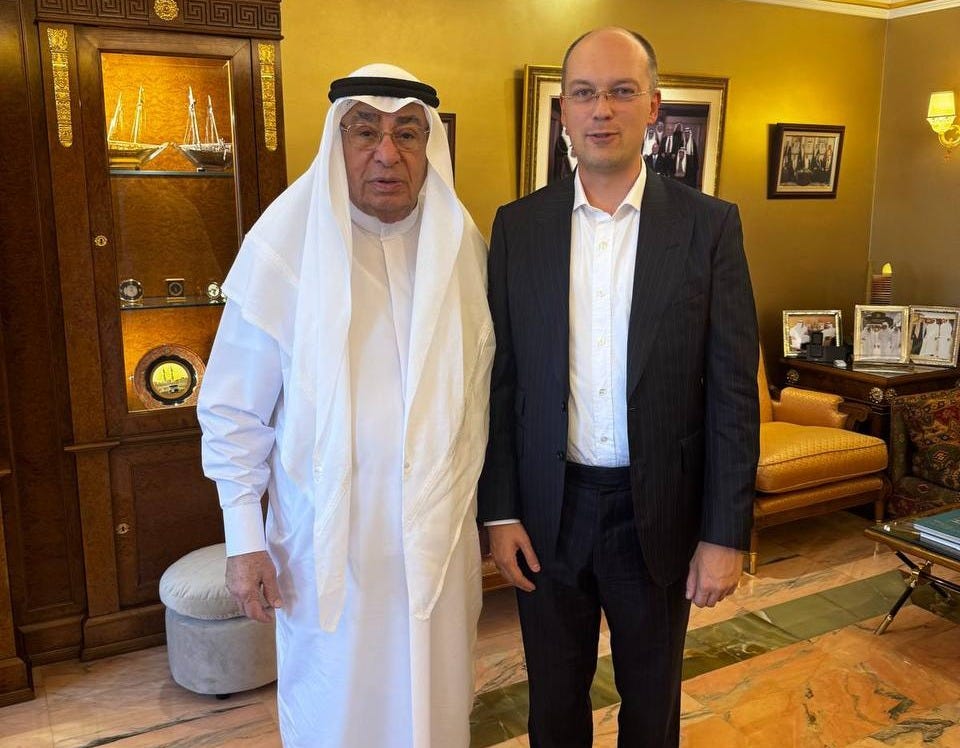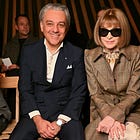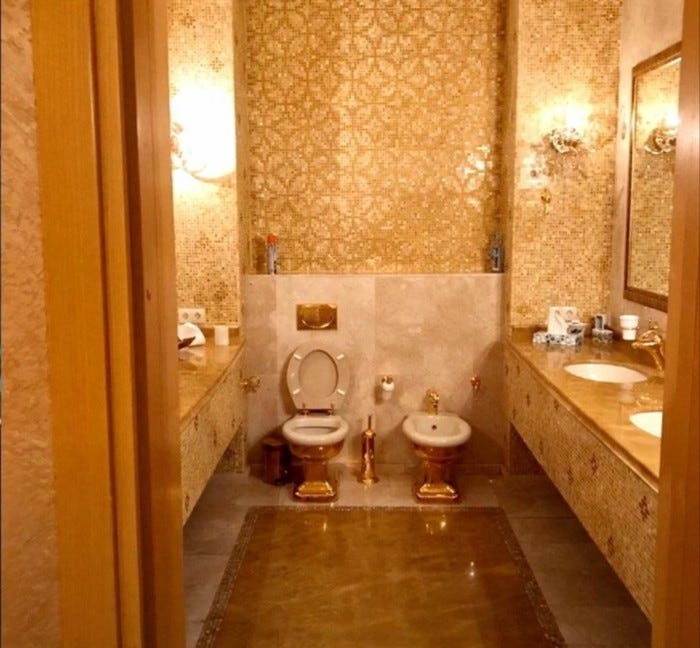Fabergé's new owner wants to make an egg for Elon Musk
Richemont crushes expectations, the JLR cyberattack brings down the UK economy a peg or two and inside the ambitious plans of the new owner of Fabergé
Paid subscribers can scroll down to read an extract from our FT story about Faberge’s new owner and his plans to make an egg for Elon Musk, as well as his rather blunt thoughts about the brand’s existing jewellery designs.
First, in this week’s Dark Luxury news round-up
Richemont crushes expectations
JLR cyberattack drags down UK GDP
Switzerland slashes US tariffs shortly after Trump gets a Rolex gift
Kering’s new CEO Luca de Meo was reportedly courted by LVMH
Richemont beats expectations and Burberry’s back to growth
Sales in the jewellery division of Cartier owner Richemont were up 14 per cent to €5.21 billion in the second quarter, another signal of the luxury industry’s recovery despite tariffs and high gold prices. (Bloomberg News) The news offers more hope for the wider industry that the broader sales slump driven by poor demand in China is ending. Vogue Business’s Laure Guilbault’s headline about the news said that these sales have surged “against the odds”, but we’ve been reporting for a while that jewellery brands are holding up better in the slump thanks to the relative increase in the value of jewellery versus handbags. “Ten years ago, the money to buy a particular bracelet from a popular jewelry brand could buy 1.5 Chanel handbags. Now, it barely covers the cost of one,” said Zuzanna Pusz, Head of European Luxury Goods at UBS back in May.
Burberry’s store sales returned to growth in the second quarter for the first time in two years and overall Ssles in China were up three per cent, although total revenue was down by three per cent to £1.03 billion. (Vogue Business). “Under Schulman, Burberry is retreating from its move upmarket and refocusing on its classic outerwear products”, is the key line from the FT story. (The Financial Times)
The industry’s biggest beast LVMH is set to open major stores in China next month for its brands Louis Vuitton, Dior, Tiffany and Loro Piana, and is considering further expansions. (Bloomberg News)
Look to the Middle East and India, control your supply chains to reduce their social and environmental impact to avoid bad press, focus on creativity and don’t raise prices too much, says the Economist in this round-up of advice for the luxury industry. “In India, the population earning over $10,000 per year, currently the top income quintile, is expected to grow by 15 per cent a year between 2024 and 2030, according to UBS”. (The Economist)
We already knew that the cyberattack on Jaguar Land Rover and the subsequent shutdown of its supply chain might have cost the UK car industry about £2 billion. Now the Bank of England says it contributed to a headline fall in the entire country’s GDP. (NBC News and Ed Conway on X)
Semiconductor manufacturer Nexperia purchased a luxury Dutch estate with farmhouse, outbuildings and swimming pool for €6.7 million to serve as a residence for Chinese CEO Wing, who was ousted just four months after the purchase. His exit kicked off a geopolitical crisis which nearly brought the entire car industry to its knees. (RTL via Finbarr Bermingham)
Other Dark Luxury news
La Lettre reports on how Gucci-owner Kering CEO Luca de Meo held informal talks with Bernard and Delphine Arnault regarding his possible hiring at LVMH in January before he joined its rival. “The younger Arnault siblings opposed his entry into LVMH”, they report. (La Lettre)
Switzerland secured a massive US tariff cut from 39 per cent to 15 per cent this week, just a week after a mysterious Rolex clock appeared on Trump’s desk as a “symbolic gesture of appreciation” from Rolex CEO Jean-Frédéric Dufour. (Hodinkee)
Puck acquired Air Mail, the digital weekly newsletter founded by former Vanity Fair editor Graydon Carter, in a cash and stock deal valued at $16 million, with Carter stepping down as editor following the acquisition. (The New York Times)
Vogue folded Teen Vogue into the main brand’s website, just like it did with Vogue Business. The Free Press effectively says good riddance, saying that the publication’s readership “included virtually no teens”. Fine, but the important thing is Teen Vogue did interesting, eye-catching stories and photo shoots, and now it’s been hobbled by Condé Nast. (The Free Press)
Aston Martin’s chair explored a buyout of the struggling carmaker with a Saudi fund to take the company private. Shares are down a whopping 99 per cent since the company’s IPO. (The Financial Times)
Tech moguls were turned away from Lisbon airport earlier this month after it reached its limit for private jet landings. (The Financial Times)
UK military top brass mixed with defence industry executives at a luxury alpine event. (The Financial Times)
A corruption investigation into figures linked to Ukrainian President Volodymyr Zelenskyy reportedly found that his former business partner Timur Mindich had a gold toilet in his apartment. (The Financial Times)
We want to know: which “very wealthy people” paid to go on a “sniper safari” during the siege of Sarajevo in the 1990s? Milan prosecutors have opened a murder investigation into claims that wealthy Italians paid up to €100,000 to shoot at civilians in Sarajevo during the 1990s Bosnian war, with different rates allegedly charged to kill men, women or children from Serb positions. (BBC News)
Dark Luxury was in the FT yesterday writing about the new owner of Fabergé, one of the most historically interesting luxury companies. My interest was piqued when I saw he was Russian, the first in decades to own the brand. A little digging led me to a Telegram group where he was sharing surprisingly candid details about Fabergé’s existing jewellery stock, which the company’s own website suggests is still worth millions.
I met Musanov along with the photographer at the former owner Gemfields’ London offices, where a wall-mounted CCTV screen streamed footage from its mine in Zambia. Only a few days after the sale went through the mining company unearthed an 11,685-carat “buffalo” emerald that, Musanov joked with me, might have meant the company wouldn’t have needed to sell to him at all. Timing is everything.
Paid subscribers can read an extract of the story below the paywall. Hopefully we’ll see some of you down at the Christie’s auction house for the Winter Egg sale next month.
Fabergé’s Russian owner hatches plan to revive brand
Originally published in the Financial Times.

Sergei Mosunov is trying to buy history. The Russian tech investor, who bought luxury brand Fabergé for $50mn from UK mining company Gemfields in August, is travelling to Qatar and Saudi Arabia. His mission: to try and secure the 1913 Winter Egg before it goes up for auction at Christie’s in London in December with an estimated price of $27mn.
As it is one of the most celebrated of the 50 imperial eggs made for the Russian tsars, Mosunov is not optimistic. “He will want it to go to auction,” he says, speaking of the Qatari emir who owns it. That this single antique egg could command a price approaching that of the entire modern brand shows the challenge Mosunov faces.







